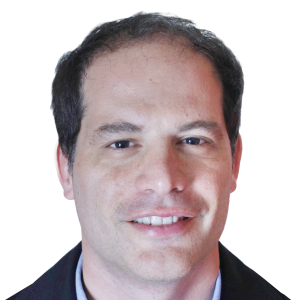Paris attacks: My nine-year-old is calm — ‘We’re used to this now’


Roula Khalaf, Editor of the FT, selects her favourite stories in this weekly newsletter.
Sitting in the packed Stade de France at about 9.20pm on Friday, I heard the first blast of the Paris attacks. But like almost everyone else watching the France-Germany football match, I had no idea it was a bomb meant for us. We Parisians have had a weekend of uncertainty and slowly dawning realisations — chief among them that Paris got off lightly. The attacks were meant to be much worse.
The first explosion seemed to come from outside the stadium. Many spectators cheered, thinking it was a firecracker or the sort of generally harmless “agricultural bomb” common at French matches. However, it was too loud. Minutes later came a second explosion. The ground shook. I trawled the internet for news but only after about 20 minutes did I find the first French report of an unspecified “explosion” that had supposedly injured one person. Meanwhile, the game continued merrily.
It now appears that three suicide bombers had planned to blow themselves up inside the stadium, causing carnage and then probably a fatal mass stampede on primetime French and German TV. This was the French team’s biggest football match of 2015, which is presumably why Isis scheduled its attacks for November 13. For 14 years I have sat through major sports events expecting a terrorist attack, most of all during the London Olympics of 2012. Big sports matches are the most-watched TV programmes and, therefore, irresistible to terrorists.
The attackers failed to enter the stadium and instead blew themselves up outside. It took the shootings elsewhere in Paris to get Isis on to global primetime.
Like most Parisians, my family spent Saturday locked up at home. I told my children that there had been shootings in Paris but that the shooters were now dead and the attacks over. I didn’t mention that the biggest slaughter happened 500 metres from home at the Bataclan club, a place we often pass. The kids took the news apparently calmly.
Sitting in your cramped flat has never been the point of Paris. Finally I ventured out with my daughter, aged nine, to the supermarket opposite. A customer there was shouting about his murdered friend. My daughter had been distraught after the terrorist attacks of January, but this weekend she remained calm. She explained to me: “We’re sort of used to this now.” She is coming to think of neighbourhood terrorism as part of life, something that happens and passes. Presumably she is working out how to cope.
Podcast

So are many other Parisians. Near the Bataclan on Saturday night I watched some Orthodox Jewish men in skullcaps chat with two bearded Muslims about kosher food and Koranic chapters. One Jew told the Muslims: “We Jews don’t even agree with each other.” A Muslim replied: “It’s good that there’s variety.” Parisians have chosen to live in a multi-ethnic city, and most just want it to work.
Countless people in developing countries live with daily fear of death, from illness or violence. Parisians have temporarily joined them. However, we get more global attention. Some of that is unwelcome. It is irksome to hear ignoramuses worldwide opine about Paris, unhindered by any apparent empathy or knowledge of the place.
I side with the US publisher Benjamin Dreyer, who tweeted: “This doesn’t require your interpretation. This is not like that other thing you hate. This is not your opportunity to score points.”
Nonetheless, people kept trying. Donald Trump blamed Friday’s high death toll on Paris’s strict gun-control laws. This argument would have been more convincing but for the fact that even in this terrible year, greater Paris (population 12m) will probably record fewer murders than the 328 that happened last year in “America’s safest city”, the almost unprecedentedly calm New York (population 8.4m).
Paris remains one of the world’s safest metropolises. But even if mass killings now cease, the city risks becoming an armed camp, its public spaces contaminated by fear. My children already think it is normal to walk to school past policemen with machine-guns. I didn’t grow up like that.
Comments